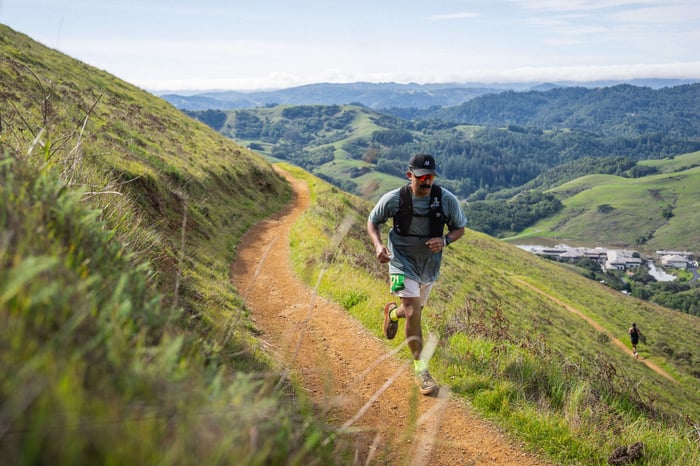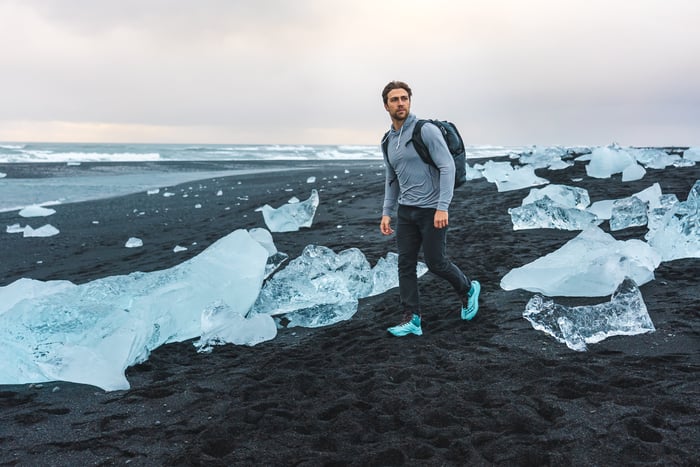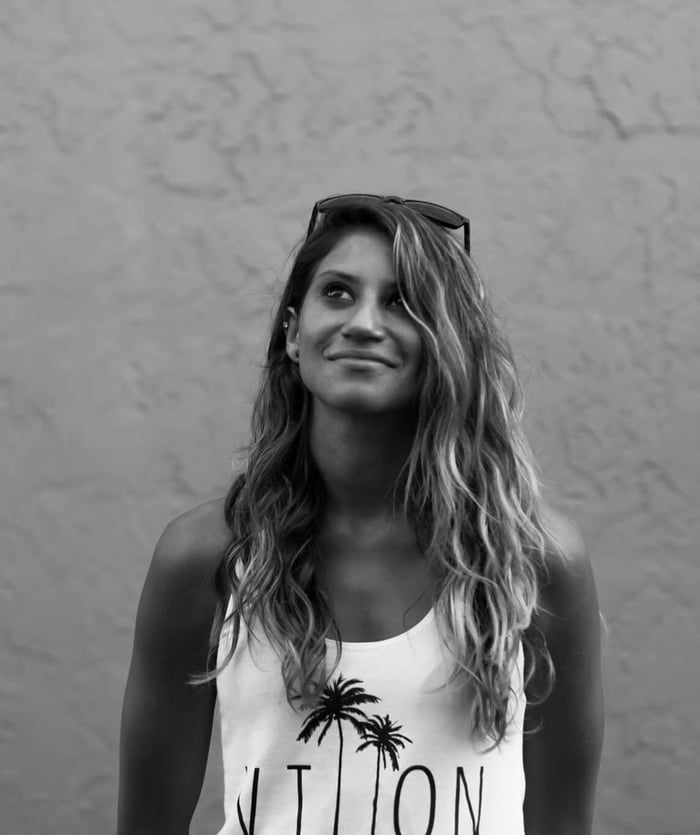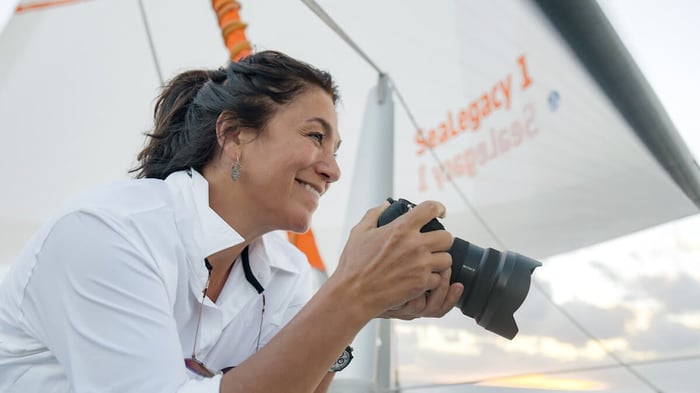We're back for the October edition of our Creator Spotlight series, where we shine a light on working creative professionals, and give them a chance to share part of their story, their learnings, their favorite tools, and more. This month, we're talking to Dave Hashim, a New York City based running photographer with over 15 years of content creation, marketing, and production experience. Though he's best known for his movement and running photography, he has a career that encompasses so much more. When he’s not shooting, you’ll find him- surprise- running long distances.
For those that don’t know you, what do you do?
I normally introduce myself as “I’m a freelance photographer specializing in the fitness and running space.” That usually checks all the boxes, but honestly most people see me as a running photographer.
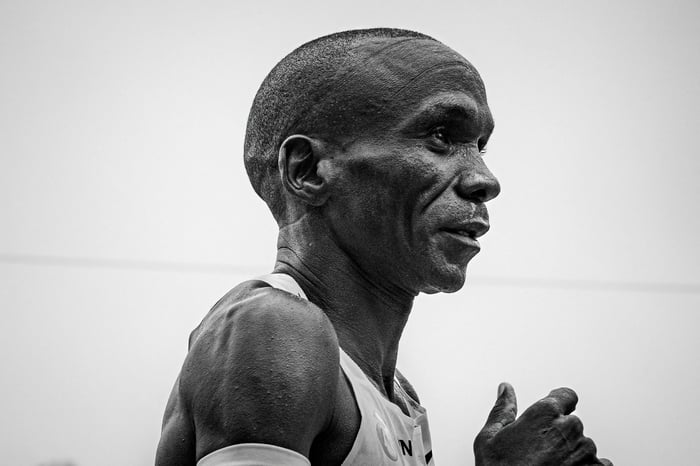 Eliud Kipchoge, by Dave Hashim at the 2023 Boston Marathon
Eliud Kipchoge, by Dave Hashim at the 2023 Boston MarathonHow did you get started on this path? What was some of your early influence or inspiration?
There was no clear path to get where I am now. Combining my love of running and photography was somewhat serendipitous but also didn’t happen by accident.
I’ve been studying photography/videography since I was very young. I was lucky enough that my middle school had a program for photography with a darkroom - so I grew up shooting black and white film on an old Pentax. Here I was able to learn photography from the ground up. As I continued in high school, I started shooting video and motion film. I was that kid that lobbied the school to start an AV club, which I was using to make short films and work on documentaries commissioned by local artists. I continued that love into college, where I studied at the University of Michigan in their screen arts program.
My main source of inspiration in photography and filmmaking early on was Stanley Kubrick. I gravitated towards his early work for LOOK magazine in NYC, when he was only 18 taking editorial photographs of daily life. I was always drawn to how he could capture a candid moment with so much texture, emotion, and context.
It's interesting given your current career that you were interested in the photography work of one of the greatest filmmakers ever. Did you always know you were going to do this professionally?
Had no idea this was going to be my career path to be honest. In college it was my goal to be a cinematographer. I was working internships in camera departments and on set. I tried to shoot as much as possible and spent what little money I had on film tests and image studies.
When I was graduating college, the film industry was still feeling the shockwaves from the writers strike and there were very limited opportunities to work in my desired field. With basically no money and no savings to fall back on, I had to get the first job I was able to land - which was an introductory role at NBC in their Page Program.
From there I didn’t touch a camera in a meaningful way for about 13 years. I ended up working full time in News and Consumer Marketing, creating commercials for programs like Good Morning America, World News Tonight, MSNBC, and Dateline. I figured my dream of being a cinematographer was gone and that the corporate world was the more rational choice.
That was- until I started running. To make a long story short-ish, I began running in 2019 and fell in love with the sport after my first marathon that same year. Then the world shut down in 2020. I continued to train and run, and even joined a track club. When the world opened up, I was socially starved (like we all were). So I decided to pick up a camera again and document my friends on their runs- sort of an excuse to hang out with people doing an activity we all enjoyed.
This turned into a healthy hobby, which turned into a career. But no, I didn't think I'd end up as a "running photographer".
Can you touch on some of your career highlights? What would you ultimately like to accomplish with your work?
This year was a big growth year for me. Not only was I able to lock in multiple global campaigns, but I was able to have a steady stream of in-bounds coming into my inbox. Honestly, that’s a career highlight enough, I don’t take any of what I’m able to do for granted.
In the future, I’d love to have a more diverse mix of subject matter. I’m really interested in lifestyle and luxury stories. My hope is I can begin to work in multiple fields, although I’ll never step away from shooting running and documenting the running community.
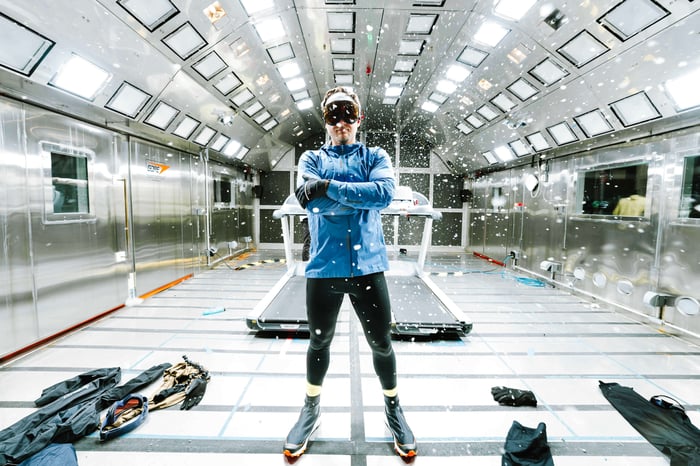
You call New York City home, but you travel a lot. Do you prefer home games or road games, when it comes to shoots?
I am fortunate to be based here in NYC, which is for sure the running capital of the world. I’ve been here over 15 years now, not sure I’m allowed to call myself a New Yorker yet but this is for sure home.
I love running all over the city and finding new places, new stories, meeting new people here. When I shoot here with a client, I really enjoy playing tour guide and showing off the best elements the city has to offer - nothing gives me more joy than to understand the neighborhoods and history I run past every day.
Shooting on-location also has its thrills, namely, solving challenges on the fly and finding new inspiration. But I do love New York.
You do a mix of athletic work and portraiture, do you have a favorite type of subject or shoot? Is there a common thread in all your work?
I think about the audience and medium a lot. We all complain, but social and web are the primary ways people are viewing my work. The only common thread is I like to give people something interesting to look at in those mediums. There isn’t a lot of real estate on a phone screen, but with each image I try to give enough context to draw in the audience to the scene. Ideally I want my images to feel lived in, authentic, with a sense of emotion or sense of purpose.
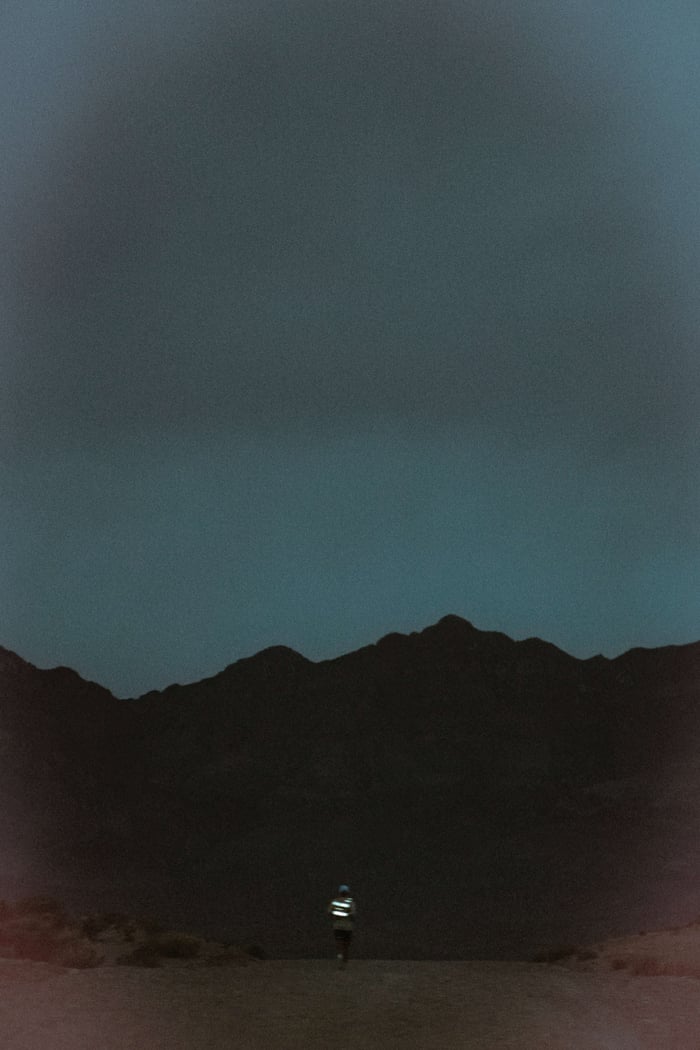 What is your workflow when you’re on the go, to ensure you keep all your data and gear (and yourself) safe, and that you can get the shot?
What is your workflow when you’re on the go, to ensure you keep all your data and gear (and yourself) safe, and that you can get the shot?
Shooting running is a physically demanding job, because of course, your subject is in constant motion. I’m usually shooting a run with two camera bodies, three lenses, an off camera flash, computer, hard drive. It’s critical that it’s all compact, easy to carry and/or run with, and durable. My gear needs to meet me where I need it, if something is too delicate to shoot with I don’t even consider it.
I try to stay as mobile as possible, this helps me start to upload, make selects, and begin editing sometimes minutes after a run ends. Unless you’re shooting a brand campaign, it’s important to get the photos to the runners as soon as humanly possible - so portable self sufficient equipment is the name of the game.
It took a lot of practice to get my kit down to the essentials. It’s an awful game of trial and error (expensive too), but that’s sometimes necessary to know what you’ll need for whichever scenario - whether you’re shooting a marathon, a brand campaign, or an unsanctioned race.
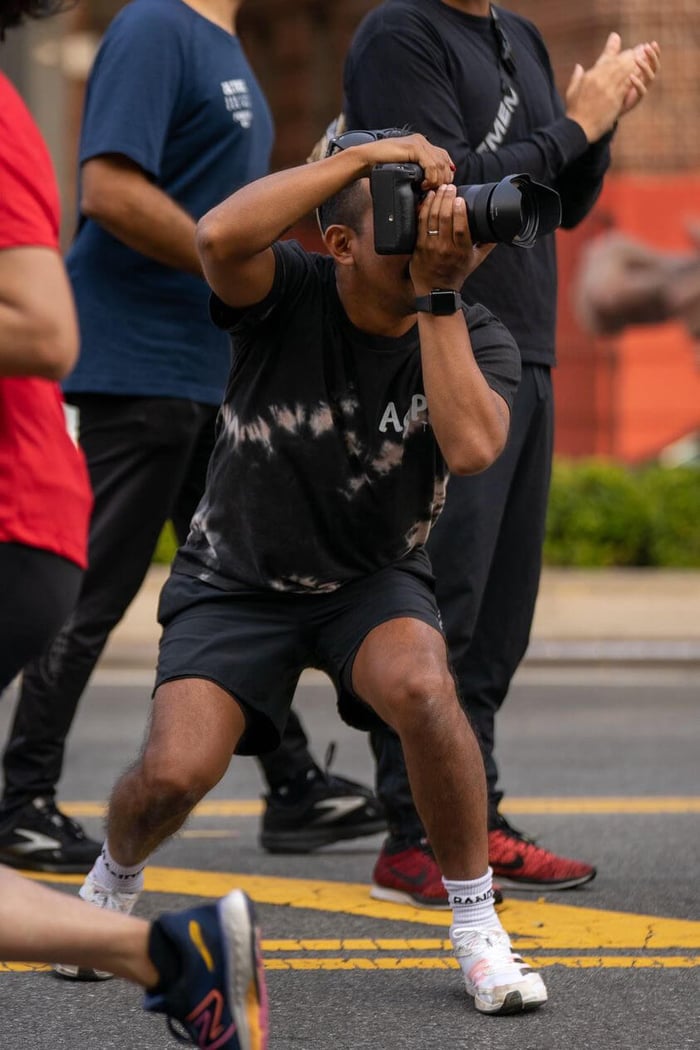 How do you stay inspired and motivated creatively?
How do you stay inspired and motivated creatively?
Self critique is critical to staying motivated. I’m always looking at my work with the most critical eye and studying images I took last year, last month, last week to understand what I can do better.
I find this helps me break down how I can push myself when I am looking for some inspiration in a film, another photographer's work, or a piece of art. Turning inspiration into actionable solutions I think helps anyone become more creatively precise.
Can you tell us about a project that was particularly challenging? How did you overcome those obstacles?
Night shooting had always intimidated me early on - even when I was shooting film in college, low light scenes always were a sore spot on my reel.
Since many runs and unsanctioned races happen at night, I knew this was critical if I wanted to shoot the sport. I started learning everything there was to know about optics, flashes, and sensors. I would watch hours of youtube videos and tutorials and then put those techniques into action on smaller events/shoots. It was incredibly frustrating, but I made sure to test as much as possible and document exactly where I went wrong and how to make the image better.
Now night shooting is probably one of my favorite types of shoots - theres so much drama and atmosphere you can pull out of just about any image taken in low light.
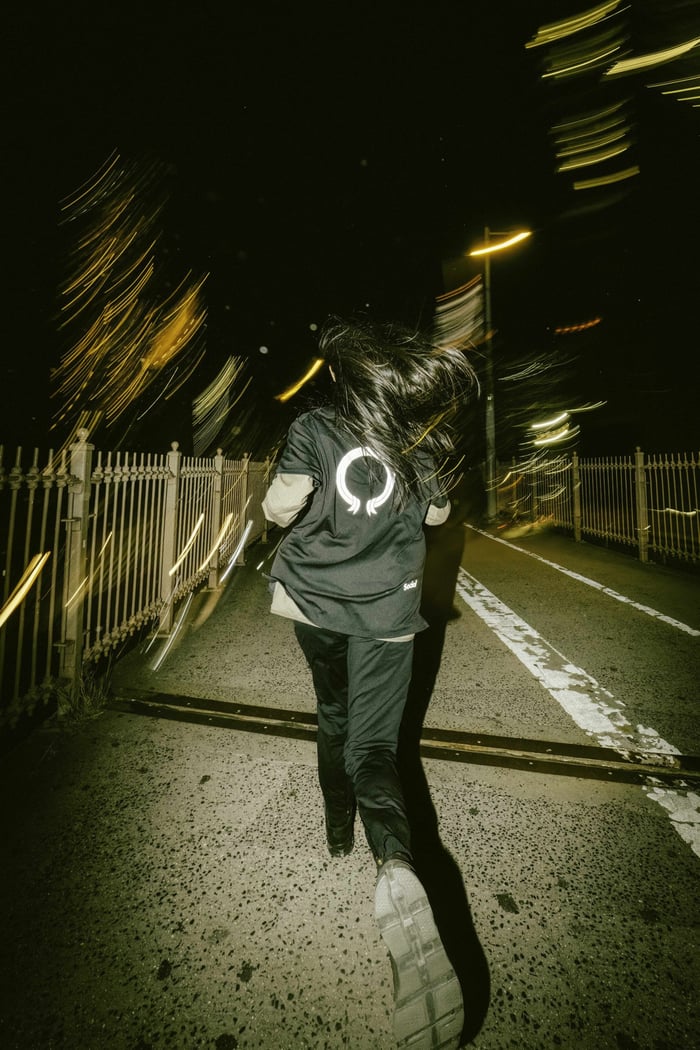
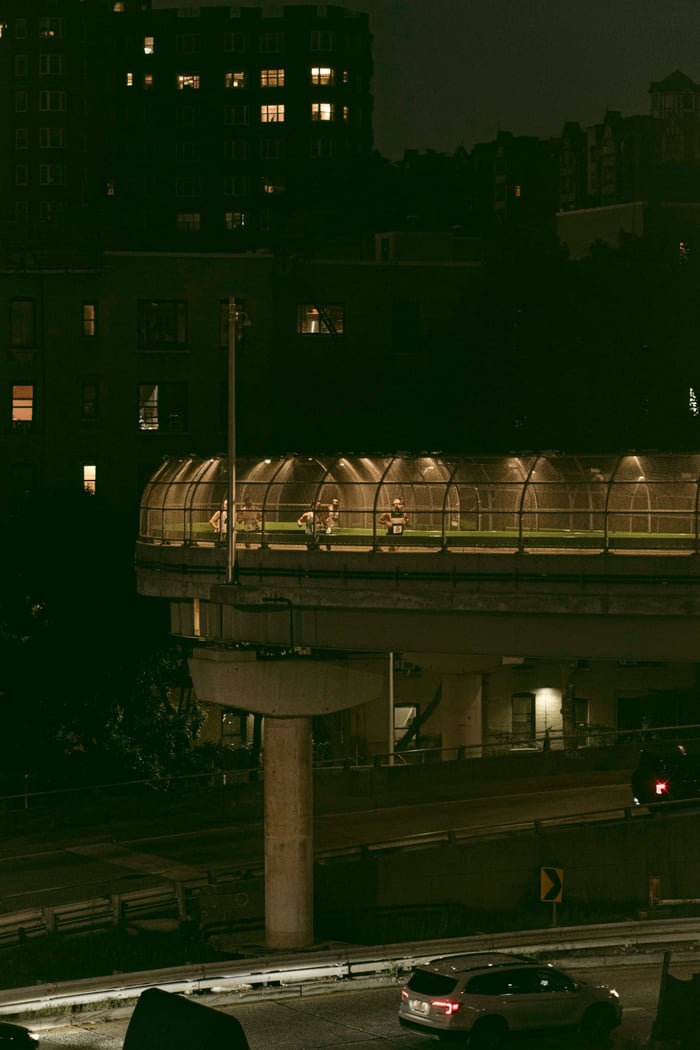
You’re an accomplished ultra runner as well, can you give us a few highlights of that part of your life? How does that fit with your imagemaking?
I started ultra running just on a whim - I knew it was going to hurt, but I was curious about how my mental state and body would respond to unknown distances and scenarios. No two ultras are alike, even if you’ve run the distance before, each requires planning for a desired outcome and inherent adversity.
All of these are basically the same principles as image making. When you’re creating something that never existed before - you can brief as best you can, cast as best you can, pre-pro the hell out of a project but you sometimes never know how the image will make you feel until you see it.
The Perimeter Project is probably the best example of this in action in an ultra sense. This was an unsanctioned ultra series that I made up, which was running the borough perimeters of every New York City Borough: Manhattan, Staten Island, Bronx, Brooklyn, Queens. Total milage was 211 miles (the fact that NYC’s area code is also 212 is a total coincidence.) Each borough I scouted for three weeks prior, I ran/rode/drove each route so I knew every turn by heart. But still on the day of the run, I experienced things that surprised me.
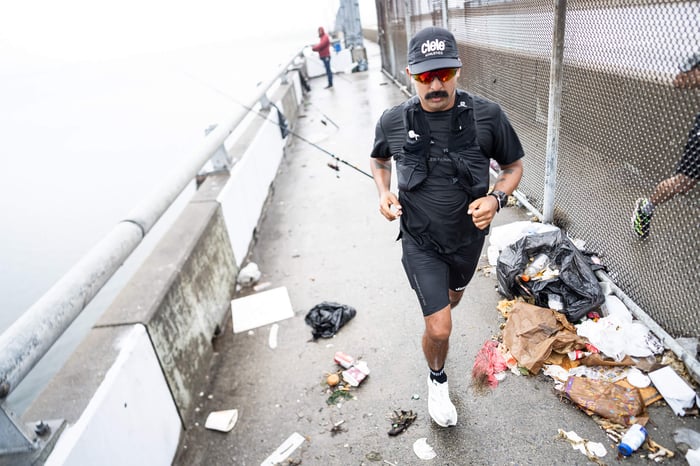 Dave on the run. Photo by Adrian Umpierrez
Dave on the run. Photo by Adrian UmpierrezHow has technology affected your career? Does anything in particular excite you about where technology's going right now?
I’ve been growing as a creative just as technology advancements have been available at an exponential rate. In my teens and 20s, I wasn’t able to always afford the highest end equipment nor could I learn on any advanced cameras. These limitations spurned creativity but it was frustrating to know that I was missing some fidelity in my images.
What’s awesome about current technology, I think we’re at a point where we all have the ability to obtain tools to create incredible work without all the constraints I had when I was in my early 20s. Even the lowest priced cameras seem to have 24 megapixel sensors, can shoot RAW uncompressed, Sony has an entire line of affordable prime lenses. The more access people have to these tools, the more ideas that are out there in the world.
What are the three ‘must haves’ for every photographer (and while you’re at it, 3 musts for every runner)?
Three must haves for every photographer IMO:
A spare 2TB hard drive: You never know when you’ll need a spare.
A camera that isn’t your work camera: It’s important to have a different camera than the camera that you use for work to shoot things that aren’t work. This will exercise your brain and allow you to not “feel like” you’re at work when you’re shooting vacations/social gatherings/street photography.
A shooting playlist: For on-set tunes are critical but I’m more talking about when you’re out shooting on assignment. When I’m covering marathons or anything that has excessive noise I like to turn on a playlist to focus and drown out any unwanted distractions.
Three must haves for every runner:
A quality nutritionist: Since I started with my nutritionist Melanie Sulaver this past year, I’ve found that I was leaving a lot of my performances to luck. A nutritionist can help just as much as a strength and running coach to help get more comfortable pushing yourself to crazy goals.
A training partner: Accountability buddies are key to getting all of the runs in. Especially on longer efforts.
A solid pair of sunglasses: Look good = feel good.
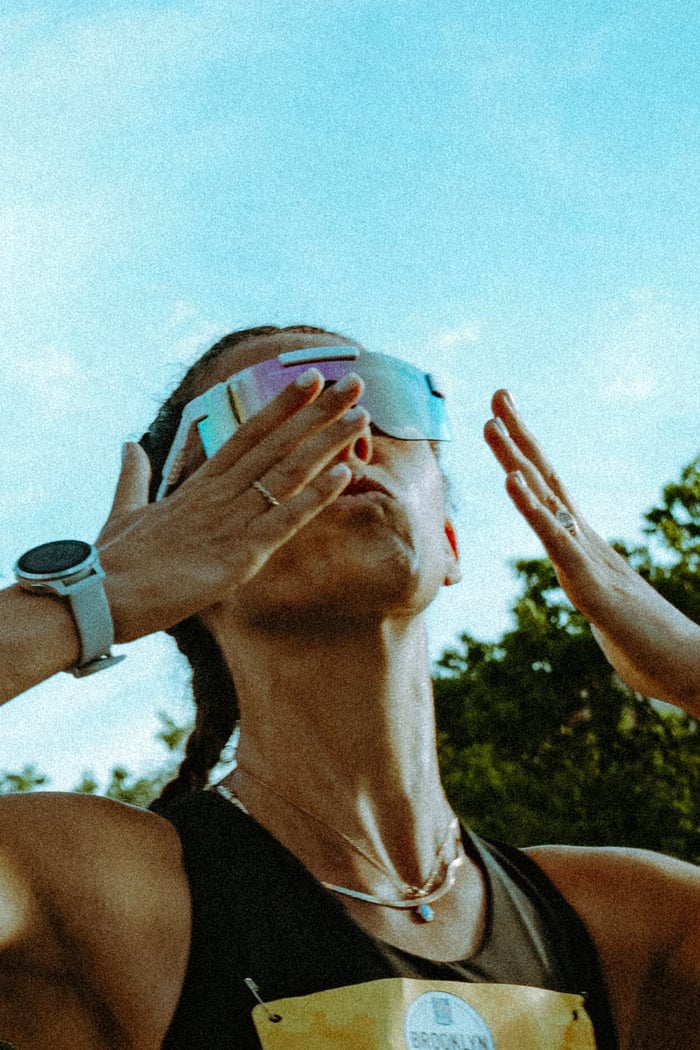
Can you tell us about a time that having a data management strategy prevented you from losing important work?
As someone who has been covering running for the past three years, having an organized archive has been crucial. Not only for pulling references for future shoots or potential clients, but ensuring I have a solid record of NYC’s running community is also important.
If you could go back in time and give your younger self advice when you were first starting out your career, what would you say?
Stay. Organized.
In my experience, 30% of being a photographer is actually taking the photo, 70% deals with meetings, presentations, organizing your life, drafting schedules, setting measurable goals for yourself. If you’re flying by the seat of your pants that's fine, but at least know how to organize yourself months in advance. This will help with lull periods of work and ensure you’re able to make rent.
What are you working on currently, or have coming up, that’s exciting?
I have a number of things in the works, I wish I could tell you about them. Mostly shoe launches, you’ll see more in 2025.
What’s the best way for people to connect with you?
Instagram is a great way to keep up with my work.
If you’re a student, fellow photographer or videographer, or just want to catch up. Just shoot me a DM or an email. I’m always down to talk shop, give helpful advice, or do portfolio reviews. I also do virtual coffees if you aren’t able to make it to NYC.
If you’re a brand, email or a form on my website is the best way to get in touch. There’s no job too small, so please reach out.
Featured image by @tonywithasony. Additional image by @weligsander.
All other images copyright Dave Hashim.


